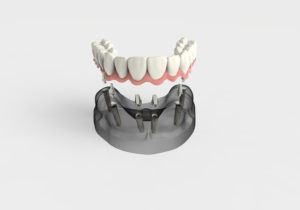 Getting through life with all your pearly whites intact can be a tall task indeed. Whether by accident or neglect, most people will sooner or later have to face the prospect of losing one or more of their precious teeth. Fortunately, through the magic of dental implants, no tooth loss needs to be permanent anymore. Instead, you can restore your missing teeth via dental implantation, a procedure that comes in handy in a wide variety of situations. If you’re curious about dental implants but don’t know much about them yet, here’s a quick primer to get you up to speed:
Getting through life with all your pearly whites intact can be a tall task indeed. Whether by accident or neglect, most people will sooner or later have to face the prospect of losing one or more of their precious teeth. Fortunately, through the magic of dental implants, no tooth loss needs to be permanent anymore. Instead, you can restore your missing teeth via dental implantation, a procedure that comes in handy in a wide variety of situations. If you’re curious about dental implants but don’t know much about them yet, here’s a quick primer to get you up to speed:
1. Implant Placement 101
Most procedures rely on a titanium implant, which is inserted into the jawbone under anesthesia. Since this is a crucial part of any successful implant procedure, great care is taken to ensure that the implant is properly placed, with a protective cap being added at the end to allow the site to heal properly. After the implant is completed, it can take anywhere from three to six months for it to fuse with the surrounding gum and bone tissue, after which it can successfully be covered by replacement teeth or dentures.
2. Crowns, Bridges & Prosthetics
When only one or two teeth need replacing, doctors will typically attach a dental crown on top that mimics the look and feel of a regular tooth. Three or four teeth will likely require a bridge to connect the replacement teeth and offer them better support within the mouth. Over four teeth it might be worth considering an implant-retained partial or full denture, which is usually supported by anywhere between four and six implant posts.
3. The Process & What to Expect
Those looking to get a dental implant should know that the process is done in two phases. First comes the insertion of the implant itself, and then after the implant post has thoroughly been absorbed and the area surrounding it has healed, it’s time to attach the tooth replacement prosthetic in whatever form it may come. The procedure’s length may seem daunting at first sight, but in reality, you’ll only need a few sessions before your new teeth are ready for their close-up.
4. The Advantages of Dental Implants
Out of all tooth replacement techniques, dental implants stand out by virtue of being the most durable and easiest to maintain in the long term. Porcelain veneers and bridges have their advantages, but when it comes to replacing teeth in both form and function, dental implants are the way to go. In fact, the average person would be hard-pressed to tell the difference between a real tooth and one that’s been implanted, even several years after the completion of the procedure.
Overall, it’s easy to see why dental implants are growing in popularity these days. It’s because more and more people are looking for durable solutions to address their missing teeth issues, and nothing is more long-lasting than a high-quality implant. For more info, please visit the Westgate Dental Care website and schedule a preliminary consultation today.
